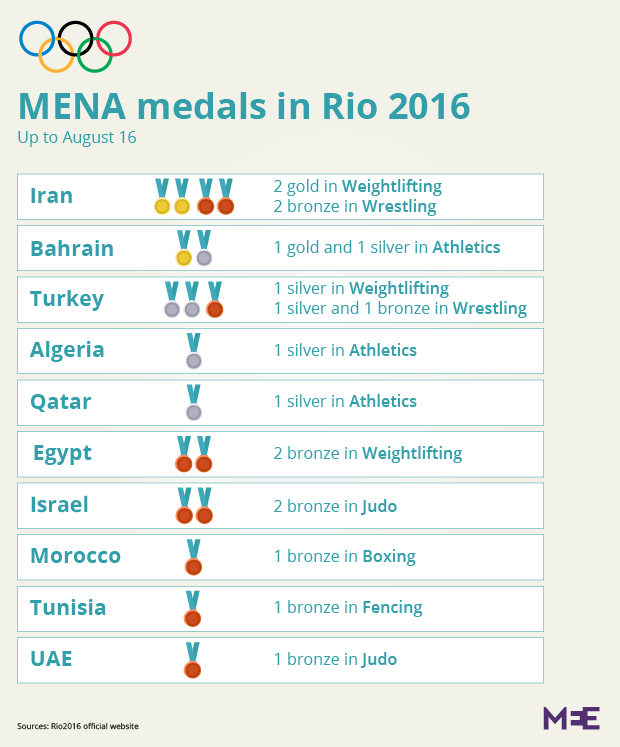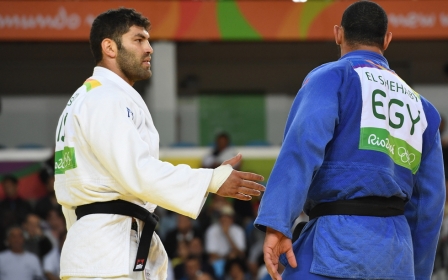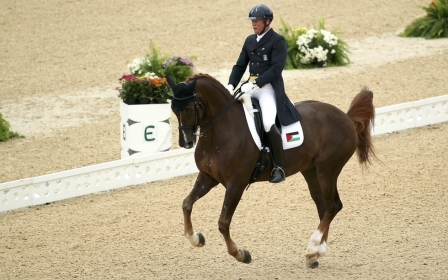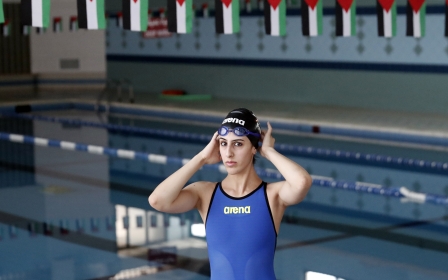Egyptian judo athlete sent home for refusing to shake Israeli's hand
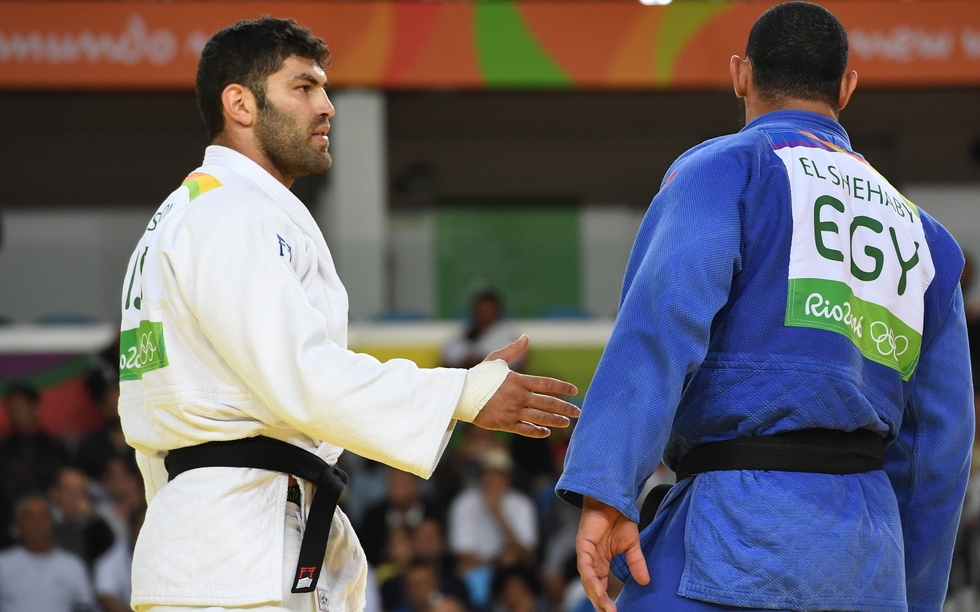
An Egyptian judo athlete was sent home from the Rio Olympics after refusing to shake the hand of an Israeli player following the end of their bout, the International Olympic Committee (IOC) said on Monday.
Islam el-Shehaby, who was sent home by his own team, lost the fight against Or Sasson on Friday and was reprimanded by the IOC for his actions.
The athlete said he did not want to shake hands with an Israeli, nor was he obliged to do so under judo rules, but the IOC said his behaviour went against the rules and spirit of the Olympic games and the rules of fair play.
“Shaking the hand of your opponent is not an obligation written in the judo rules. It happens between friends and he's not my friend,” Shehaby said after his bout.
“I have no problem with Jewish people or any other religion or different beliefs. But for personal reasons, you can't ask me to shake the hand of anyone from this state, especially in front of the whole world,” he said.
After Sasson defeated Shehaby and the pair retook their places in front of the referee, the Egyptian backed away when Sasson bowed and approached him to shake hands.
When called back by the referee to bow, Shehaby gave a quick nod before walking off amid loud boos from the crowd.
“The president of the National Olympic Committee issued a statement saying they respected all athletes and all nations at the Olympic games,” the IOC said in a statement.
“The DC issued a 'severe reprimand for inappropriate behaviour' to the athlete. It noted ... the shaking of hands after a match is not in the competition rules of the International Judo Federation.”
“As well as a severe reprimand, the DC has asked the Egyptian Olympic Committee to ensure in future that all their athletes receive proper education on the Olympic values before coming to the Olympic games,” the IOC said.
In a statement, the Egyptian Olympic Committee said that "Shehaby was told earlier to maintain good sportmanship throughout the match with the Israeli player".
"This is an international competition after all, and simply a game of judo. What happened after the game and his refusal to shake hands was his personal action."
Shehaby, 32, had reportedly been pressed by fans on social media not to show up for the match with his Israeli opponent, who went on to win bronze in the +100kg category because it would shame Islam.
This is not the first time athletes from Arab nations or Iran have refused to compete with Israeli athletes at the Olympics or other international competitions.
Earlier in the tournament, the Lebanese Olympic team refused to share a bus with its Israeli counterpart.
"Because you do not normalise with apartheid regimes, you boycott them. Gold medal for Lebanon. #BDS #BoycottIsrael," Diab Abou Jahjah, the founder of the Arab European League, tweeted on Monday after the bus incident.
Saudi judoka Joud Fahmy reportedly forfeited her first match at the games to avoid facing an Israeli opponent in the next round.
But the Saudi Olympic delegation tweeted that Fahmy had suffered injuries in her hand during training and did not quit for political reasons.
At the 2004 Athens Olympics, then Iranian world champion Arash Mirasmaeili refused to fight Israeli judoka Ehud Vaks, earning praise back home.
Egypt was the first Arab power to make peace with Israel, in 1979, but the treaty remains unpopular among many Egyptians.
Middle East Eye propose une couverture et une analyse indépendantes et incomparables du Moyen-Orient, de l’Afrique du Nord et d’autres régions du monde. Pour en savoir plus sur la reprise de ce contenu et les frais qui s’appliquent, veuillez remplir ce formulaire [en anglais]. Pour en savoir plus sur MEE, cliquez ici [en anglais].


